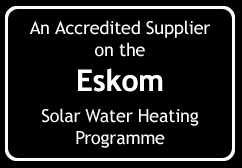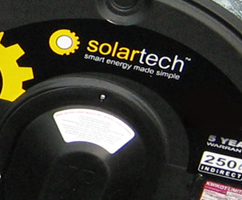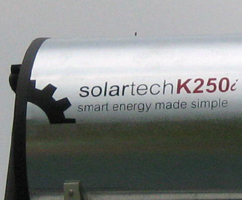

November 2nd 2010As solar technology continues to evolve more and more home-owners are considering it as an environmentally (and eventually) budget friendly way to reduce their carbon footprint. Graham Mundy, founder and managing director of Solar Beam, a South African based solar water heating specialist, says that the local market for these units have exploded following the country's energy crises in 2008. This isn't the only reason such a device might come in handy though, as Eskom pledged to provide rebates to consumers who install accredited solar water heating systems in their homes. Mundy says many of the solar water companies that have sprung up in South Africa in recent years simply import products from Europe or Asia, which are in his opinion a poor fit with South African conditions. He recommends that buyers opt for a flat-plate (flat solar panel) solution, a tried and tested method in the country, instead of going for new solutions based on glass tubes which are not ideal for our weather conditions. The reason for this is that flat-plate solar panels are more robust than glass tube systems, so they can withstand tougher weather conditions, such as hail, and can also survive the transport process better than glass tubed systems. Mundy also warned against retro-fitted solutions, where solar panels are simply connected to an electrical geyser. He says the quality of these systems are not up to the level of dedicated solar systems. He adds that these solutions have given the solar industry a bad name due to their poor insulation and volume problems associated with the devices. ?After having 35 years of industry experience, if this was a durable, long-term and cost effective solution, I would have advocated it. Unfortunately this is not the case?, said Mundy. Numerous solutions are offered to lower one's electricity consumption, but Mundy says that solar water heating is the only method which is not 100% electricity reliant, meaning that once the initial purchase has been made, your water heating bill will be free from there on. Mundy recommends that consumers only trust solar heating companies that have an SABS Mark of Approval as well as some history in the market. As electricity prices continue to rise (and they will continue to rise indefinitely), purchasing a solar water heater is looking like a better and better idea. The Eskom rebates are issued in cash to the consumer by Eskom once an SABS approved Solar heater has been installed, and are calculated according to the amount of power the system saves the user in heating water. The increased rebate levels can see customers receiving cash rebates between R2 100 and R12 500. Source: techsmart.co.za 02 November 2010 by Johan Keyter |




